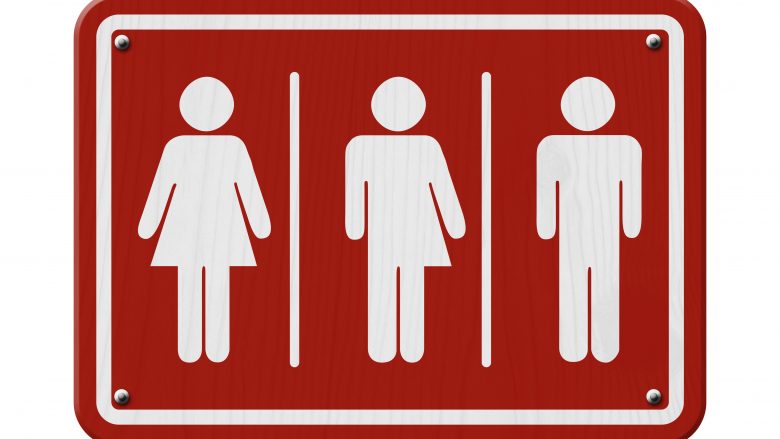Maine Governor Vetoes Conversion Therapy Ban, and Wonders Why Female Genital Mutilation Measure Didn’t Make It To His Desk
By NBP Staff | July 9, 2018, 6:07 EDT

Maine Governor Paul LePage has vetoed a bill that would outlaw so-called “conversion therapy” aimed at changing the sexual orientation or gender identity of a minor, sending a blistering message to state legislators chiding them for not passing an unrelated bill that would have outlawed female genital mutilation.
LePage, a Republican, pointed out that supporters of the bill didn’t provide evidence that any licensed therapists in Maine are practicing conversion therapy, but he said Maine hospitals see cases of botched genital mutilations “gone horribly wrong.”
“Legislators who could not stand up and outlaw the permanent mutilation of young girls’ sexual organs by laypersons in unsanitary conditions with razor blades now are concerned with outlawing conversations, of which there is also ‘no evidence’ that it is happening in Maine,” LePage said in his veto message. “This is a disgusting double-standard.”
Female genital mutilation is practiced by some Muslims as a means to promote chastity. It is associated with some cultures in Africa, including in Somalia; Maine’s two largest cities, Portland and Lewiston, have significant populations of Somalis – estimated at about 5,000 people in each place earlier this decade.
As for conversion therapy, Maine House Bill 912 would outlaw it. Also under the measure, evidence that a school psychologist or guidance counselor has practiced conversion therapy would be grounds for revoking the license of the psychologist or guidance counselor license and for denying a license to a first-time applicant.
LePage called the proposed conversion therapy ban “bad public policy.”
“I strongly agree that young people should not be physically or mentally abused if they come out to their parents or guardians because they have experienced sexual or romantic attraction toward an individual of the same gender,” LePage wrote in his veto message (available on the governor’s office web site) to the Maine Legislature on Friday. “However, as this is written – ‘any practice or course of treatment’ – can call into question a simple conversation. This is so broad that licensed professionals would be prohibited from counseling even at the individual’s own request. We should not prohibit professionals from providing their expertise to those who seek it for their own personal and basic questions such as, ‘How do I deal with these feelings I am experiencing?’”
LePage said he also has “grave concerns” that the Maine House Bill 912 “can be interpreted as a threat to an individual’s religious liberty.”
“Parents have the right to seek counsel and treatment for their children from professionals who do not oppose the parents’ own religious beliefs,” LePage said.
Supporters of banning conversion therapy say being attracted to members of the same sex or identifying with a gender other than a person’s biological sex isn’t negative, and that trying to change sexual orientation or gender identity can harm people. They also argue the practice can’t work.
The sponsor of the measure, state Representative Ryan Fecteau (D-Biddeford), who at 25 is the youngest openly homosexual state legislator in the country, expressed disappointment in LePage’s veto.
Disappointed in @Governor_LePage’s veto of LD 912. He is the first governor in the nation to do so. 6 Republicans and 7 Democrats have signed the bill into law. When there is no federal protections, states should take action. Gov. LePage instead chose inaction. #MEPolitics
— Ryan Fecteau (@RyanFecteau) July 6, 2018
Maine legislators can enact the law on their own if two-thirds of the state House of Representatives and two-thirds of the state Senate vote to override the governor’s veto, but it’s unclear that supporters can get the votes they need.
The bill passed 19-12 in the Maine Senate on June 26, with four absent. (Republicans control the Senate by a bare majority, 18-17. Five Republicans voted for the bill; no Democrats voted against it.) There are 35 members of the Senate. If all voted on the motion to override the veto, it would require 24 senators supporting the bill to reach the required two-thirds.
The House passed the measure 80-55 on June 21, with 16 absences. (Democrats control the House, 77-70, with four members not affiliated with either major party. Four Republicans voted yes; no Democrats voted no.) There are 151 members of the House; two-thirds is 101.
But the exact number needed depends on who votes when the override attempts occur. An override in Maine requires “a 2/3 vote of those members present and voting in each chamber,” according to a document published by the state legislature called “Maine’s Path of Legislation.”










